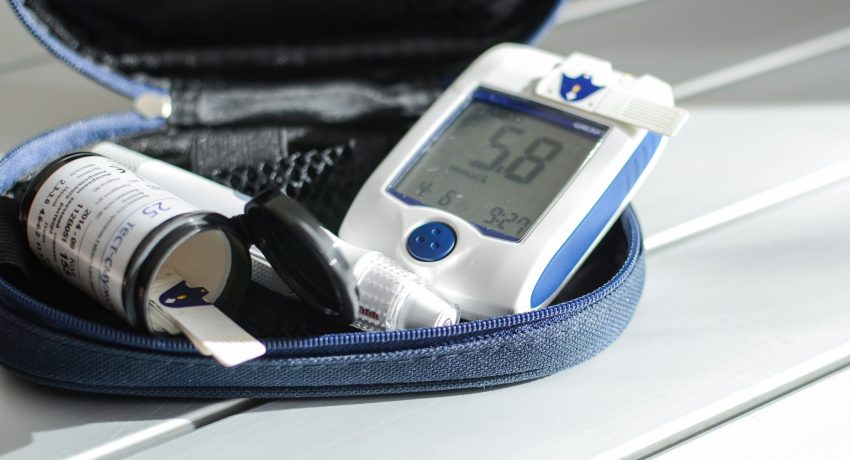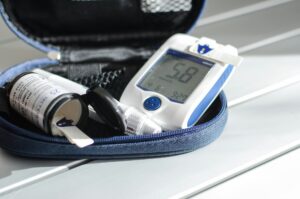Managing Stress to Improve Diabetes Control
Living with diabetes can be a daunting challenge, not just due to the medical regimen but also because of the emotional and psychological toll it can take. Stress management is a crucial yet often overlooked component of effective diabetes control. Elevated stress levels can significantly disrupt your diabetes self-care routine, potentially leading to poor blood glucose regulation. This blog post delves into the intricate relationship between stress and diabetes, exploring actionable strategies to manage stress and thus improve diabetes control.
The Vicious Cycle: Stress and Blood Sugar
Stress and diabetes create a feedback loop that can exacerbate the condition. When you are stressed, your body releases hormones like cortisol and adrenaline. These stress hormones trigger the liver to release more glucose into the bloodstream, aiming to provide energy for a ‘fight or flight’ response. While this physiological reaction may have been life-saving in ancient times, for a person with diabetes today, it means higher blood sugar levels.
Moreover, stress can disrupt your daily routine, leading to unhealthy eating habits, reduced exercise, and poor sleep—all of which can adversely affect blood glucose levels. The frustration of dealing with fluctuating blood sugars can further increase stress, creating a vicious cycle that is hard to break.
Recognizing Stress Triggers
Effective stress management begins with recognizing what triggers your stress. Common stressors include work pressure, family responsibilities, financial concerns, and even the constant demands of managing a chronic condition like diabetes. Keep a journal to jot down stressful events and observe patterns. Identifying these triggers can help you anticipate and plan for stress, allowing you to take proactive steps to manage it.
Mindfulness and Relaxation Techniques
Mindfulness and relaxation techniques are powerful tools for managing stress. Mindfulness involves staying present and fully engaging with the current moment, rather than worrying about the future or ruminating on the past. Techniques like deep breathing, meditation, and progressive muscle relaxation can help lower stress levels and improve your body’s ability to manage blood glucose.
Apps like Headspace, Calm, or Insight Timer provide guided meditations that can assist you in developing a mindfulness practice. Even ten minutes of daily meditation can significantly reduce stress levels, making it easier to manage diabetes effectively.
Exercise: A Dual Benefit
Exercise is another potent stress-reliever that offers the dual benefit of helping to control diabetes. Physical activity triggers the release of endorphins, chemicals in the brain that act as natural mood lifters. Exercise also improves insulin sensitivity and helps lower blood sugar levels.
Incorporate activities you enjoy, such as walking, swimming, or yoga, into your routine. Aim for at least 150 minutes of moderate-intensity exercise per week, broken down into manageable sessions. Consistency is key; even short, regular workouts can make a significant difference in your blood sugar control and stress levels.
Healthy Eating Habits
Diet plays a critical role in both managing diabetes and alleviating stress. Eating a balanced diet rich in whole foods can stabilize blood sugar levels and reduce the physiological impact of stress on your body. High-fiber foods, lean proteins, and healthy fats provide sustained energy and keep blood glucose levels stable.
Conversely, high-sugar or high-fat foods can cause rapid spikes and crashes in blood sugar levels, contributing to stress and anxiety. Plan your meals ahead of time to ensure you’re making healthy choices, and don’t skip meals, as this can lead to blood sugar fluctuations and increased stress.
Social Support and Professional Help
Sometimes managing stress and diabetes can feel overwhelming, and it’s crucial to seek support. Share your feelings and struggles with family and friends who can offer emotional backing and practical assistance. Support groups, either online or in-person, can also provide a sense of community and understanding.
If stress becomes unmanageable, consider seeking professional help. A psychologist or counselor can offer coping strategies and techniques tailored to managing the unique challenges of living with diabetes. Cognitive-behavioral therapy (CBT) has been proven particularly effective in reducing stress and improving diabetes control.
Effective Time Management
Time management can significantly reduce stress, especially when balancing the demands of diabetes care with everyday responsibilities. Use tools like planners, apps, or to-do lists to organize your tasks and ensure you’re not overwhelmed by a backlog of responsibilities. Prioritize essential tasks, delegate when possible, and don’t hesitate to set boundaries to protect your time and wellbeing.
Sleep: The Unsung Hero
Quality sleep is often the first casualty of stress, yet it’s vital for effective diabetes management. Poor sleep can lead to insulin resistance, higher blood sugar levels, and increased stress. Establish a sleep routine by going to bed and waking up at the same time every day, even on weekends. Create a calming bedtime ritual, such as reading or taking a warm bath, to signal to your body that it’s time to wind down.
Avoid caffeine and electronic devices before bedtime, as they can interfere with your ability to fall asleep. If you continue to have trouble sleeping, consult a healthcare provider for further guidance.
Positive Self-Talk
The way you talk to yourself can have a significant impact on your stress levels and diabetes management. Negative self-talk can increase stress and make diabetes management seem more daunting than it is. On the flip side, positive self-talk can boost your confidence in managing the condition and reduce stress.
Practice affirmations and remind yourself of your strengths and accomplishments. Replace negative thoughts with positive ones, and give yourself grace when things don’t go perfectly. Remember, managing diabetes is a marathon, not a sprint, and every effort counts.
The Role of Technology
Technology can be a valuable ally in managing both stress and diabetes. Continuous glucose monitoring (CGM) systems, insulin pumps, and health apps can help you keep closer tabs on your blood sugar levels and insulin intake. These tools can reduce the stress associated with diabetes management by providing real-time data and more precise control over your condition.
While technology can be beneficial, it’s essential to find a balance. Too much focus on monitoring can sometimes lead to anxiety. Use technology as a supplement to, not a replacement for, a well-rounded diabetes management plan.
In Conclusion
Managing stress is not just about feeling better emotionally; it’s about attaining better health and more effective diabetes control. By recognizing stress triggers, incorporating mindfulness, exercising regularly, eating a balanced diet, seeking social and professional support, managing your time effectively, ensuring quality sleep, engaging in positive self-talk, and leveraging technology wisely, you can reduce stress and improve your ability to manage diabetes.
Remember, it’s okay to ask for help and take small steps. Managing diabetes is a complex journey, and effective stress management can make that journey smoother and more rewarding. By prioritizing your mental and emotional wellbeing, you’ll be better equipped to handle the demands of diabetes care and lead a healthier, more balanced life.




